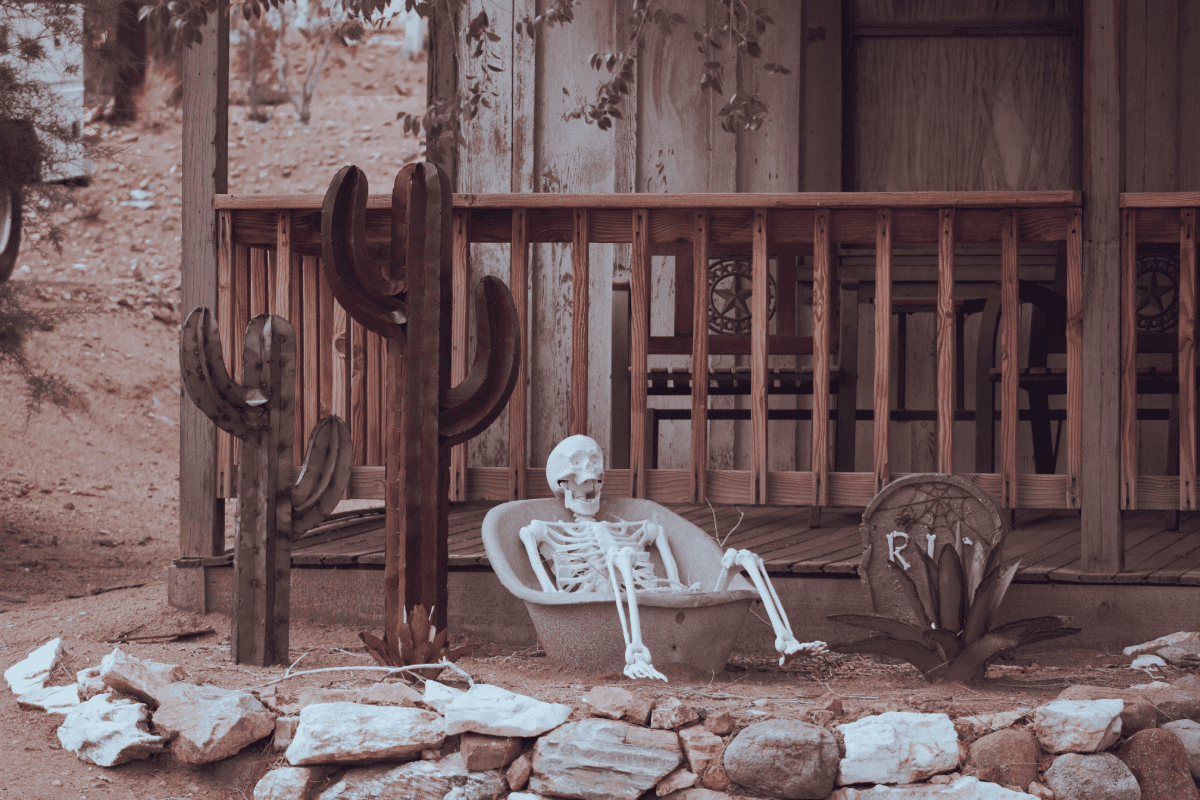A Last Will and Testament: The ABC’s for Gen X,Y, Z
By Heidi Unrau | Published on 20 Dec 2022

Maybe you haven’t thought about a Last Will and Testament, but you’ve at least thought about what happens after you die. I mean what happens to your stuff, your body, and your loved ones. Not if you end up in a good place, bad place, or just pushing up daisies. You’re young but you still need to plan for what happens to your social media accounts, your crypto, your pets, your car, and anything else. Crazy right? It’s time to Will and chill.
A Last Will and Testament isn’t hard to get. There are online platforms like Epilogue, so you don’t have to find a lawyer or take time off of work or school to plan your estate. Without a Last Will and Testament, your survivors could face unnecessary stress, mess, and time in provincial court. Also, a Last Will and Testament is a great way to boss people around from beyond the grave; I’m dead serious. So let’s talk about what a Last Will and Testament is, why anyone over 18 needs it, and how to get one without killing your budget.
What is a Last Will and Testament?
A Last Will and Testament is a legal document that tells everyone how you want your estate divided up among your beneficiaries. If you’re new here, “estate” means all the money, property, and other stuff you own that has financial and sentimental value. It also includes any liabilities you might have like debt and taxes owing. A Last Will and Testament usually has specific instructions in it for almost anything you want like who will care for underage children, how to handle your remains, what happens to your Facebook profile, or who gets the keys to your crypto.
But who actually takes care of all this? Well, you appoint someone you trust to be the Executor of your Will. The Executor is responsible for gathering all your assets, settling your liabilities, distributing whatever is left to your named beneficiaries, and ensuring your wishes are carried out according to your instructions. You get to choose the Executor which can be one person, multiple people, or even a trust company.
The word “last” in Last Will and Testament refers to the most recent version of your Will. That’s because your Will is not a one-and-done, set forever in headstone kind of thing. You can, and should, update your Will fairly often. Generally, it’s a good idea to update your Last Will and Testament about every five years to make sure it accurately reflects your current situation and wishes. You should also update it right away anytime:
- A relationship becomes common-law
- You get married
- You have a child
- You get or plan to get divorced
- You get remarried
- Your financial situation changes
- Your personal relationships change
- You start a business
- You buy or dispose of property
Why do I need a Last Will and Testament?
There is a lot of conflicting advice out there about who really needs a Last Will and Testament, and who can skate by without one. But those arguments are centred heavily around whether a person has a spouse, children, assets, or positive net worth, among other things. There is so much more to you and your situation than just money and munchkins.
It doesn’t matter if you’re a broke joke, a parent with tiny or fully-grown humans, or Kevin O’Leary with stacks on deck, you need a Will. Even if you have zero assets and no kids, a Last Will and Testament could help your beneficiaries access certain tax credits! At the very least, it can provide funeral instructions and what to do with your internal organs.
Here are the top 5 reasons you need a Last Will and Testament:
1. To call the shots after you die
In your Last Will and Testament, you can lay out clear instructions about who gets what and how much. Do you have assets like investment accounts, property, a vintage car, or a mint Pokemon card collection? You can decide who gets what, how much, and when. Or you can tick everyone off and donate it all to charity. You can even decide who gets sweet little Penny, your adorable Labradoodle, and who gets access to digital stuff like your Facebook account and that super-secret cryptocurrency wallet. Guess what? You can even disinherit people, which means you can prohibit named individuals from grabbing your assets! You get to call the shots and throw shade from the great gig in the sky.
2. To care for your kids, your parents, or your pet
A Last Will and Testament is especially important if you have children under the age of 18 or another dependent. You can leave explicit instructions about who will care for them, who will manage their financial assets like their inheritance or trust accounts, and when they can access those assets. You can also decide how you want your dependents to be cared for. And you can stipulate certain conditions like the children must not be separated, that they remain at their current school or other requirements. This takes on increased importance when you are responsible for someone with diminished capacities or an elderly parent.
If you and your partner ride and die together, say in a car crash, or you’re a solo parent, your children might end up in the foster care system or with a relative that would make you turn over in your grave. How traumatic! With a Last Will and Testament, you decide who will raise your kids and exactly how their assets will be handled. This goes for any living thing that you take care of: dog, cat, fish, cactus collection, etc.
3. To keep things chill for everyone
Dying without a Last Will and Testament is called dying “intestate,” which means the provincial government decides who will handle your estate and how it’s administered. Through a process called “probate,” they must take a careful look at your situation, and they’re not known for being fast or cost-effective about anything. This can cause your family a lot of stress, money, and heartache during an already traumatic time. Not to mention, if a dispute or legal battle breaks out, which happens a lot actually, things get even slower, more expensive, and hella stressful. It won’t matter that your loved ones know what you actually wanted. The government will just shrug and say #WillOrItDidntHappen.
4. To honour the people you love
When you die without a Last Will and Testament, your provincial government will decide how to handle your estate. Don’t they control enough already? A legal formula is used and applied to everyone equally-unfairly; they don’t care about the nature of your relationships. Your wealth or Pokemon card collection could end up in the hands of an ex-spouse or the hot-mess cousin you cut out 10 years ago. Plus, did you know a common-law spouse doesn’t have the same rights to your estate as a legally married spouse? True story. A Last Will and Testament honours the people you love most by ensuring they get exactly what you want them to have.
5. To stay in control of your body
Your body, your choice in life and in death. That’s right, you can leave specific instructions on how you would like your body to be handled after you bite the dust. Would you like to be buried next to your beloved great-grandmother? Cremated? Have your ashes launched into space or made into a diamond? You can donate your body to science, or donate your organs to save lives. Heck, you could even ask to have your body cryogenically frozen so you can return as an International Man of Mystery in 30 years. The point is that a Last Will and Testament gives you control over your own body when you literally can’t speak for yourself anymore.
How do I get a Last Will and Testament?
Now that you agree you need a Will, you might still be dreading the process. Getting a Last Will and Testament used to be expensive drudgery, but not anymore, that’s old school now. With Epilogue, you can get a Last Will and Testament quickly, easily, and without selling your immortal soul to pay for legal fees. How? Epilogue is an online estate planning service created by actual Estate Lawyers. They operate in Alberta, British Columbia, Manitoba, New Brunswick, Newfoundland and Labrador, Nova Scotia, Ontario, Saskatchewan and PEI. They know this stuff like the back of their hands. They also have families of their own, so they understand what’s important and all the little details to consider.
If you’d rather die than talk to someone in real life, no worries, it’s all digital. And without expensive overhead costs, Epilogue can pass the savings on to you. Plus, it’s mega fast too. In three simple steps you’ll get a personalized and legally binding Last Will and Testament. Just answer some questions about your situation and what you want, review your custom Will, and follow the signing instructions. Boom. Now you have a legit Last Will and Testament. What you don’t have is a big bill and a killer headache.
